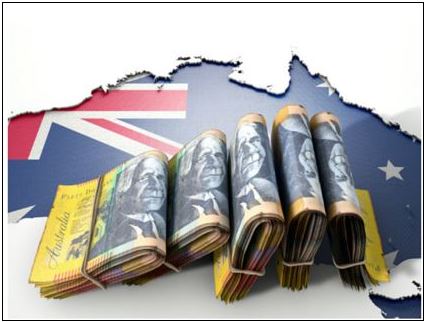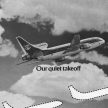Despite pleas that Australia’s $55 departure tax is damaging tourism, a protracted campaign by the industry’s top lobby group, the Tourism and Transport Forum, to reduce or scrap the so-called Passenger Movement Charge (PMC) has failed.
And there are two other new slugs that local and foreign travellers will have to deal with.
All that the TTF has been able to extract from the national government in Canberra is a freeze on any increase in the PMC, which it is now claiming as a victory of sorts.
“The Federal Government’s decision to stay its hand on visa fees and the continuing freeze of the Passenger Movement charge at the current $55 rate is good news,” says TTF chief executive Margy Osmond.
The TTF has previously slammed the PMC as a blatant cash grab. It was originally designed to cover the cost of the government’s customs and immigration services at the national borders, but now raises four times that.
The TTF projects that the PMC will haul in $A1.007 billion in 2016-17 to cover customs and immigration services that cost only $247 million to provide.
“The $55 Passenger Movement Charge has now morphed into a $1 billion holiday tax on Australians and international visitors leaving the country,” Ms Osmond complained in February.
The PMC is second only to Britain’s hated Air Passenger Duty, which, on April 1 this year, rose to £73 ($A141) for long-haul travellers landing in or leaving that country – and double that in premium economy, business or first class.
However, the UK’s short-haul tax for travellers from destinations less than 3200 kilometres away is just £13 ($A25), which means the Australian PMC is the biggest short-haul travel tax in the world as it applies to everyone entering and leaving the country.
Ms Osmond said the industry was also bitterly disappointed that the government had decided to forge ahead with a 32.5 per cent backpacker tax on working holiday-makers.
“The federal government’s destructive backpacker tax is going to smash the number of people choosing Australia as a backpacking destination when working holiday makers are taxed 32.5 per cent on every dollar they earn on their holiday,” she said.
“Working holiday backpackers are a crucial source of labour for tourist operators in remote and regional parts of Australia.
“TTF will be actively working during the federal election campaign [before a looming national election on July 2] to hold both sides of politics to account to continue the freeze on the Passenger Movement Charge, scrap the backpacker tax, reform visas, boost Tourism Australia and privatise the Tourist Refund Scheme [which allows international travellers to obtain refunds of retail taxes on their way out of Australia].’’
The TTF, however, is far from hostile about another “secret” tax introduced in the May 3 budget – a so-called “high roller” tax for premium passengers entering Australia.
The budget papers reveal that a fee will be imposed on airport operators in Sydney, Perth and Melbourne for some international passengers, but the government says the amount to be charged and raised by the tax can’t be revealed.
“The expenditure for this measure is not for publication due to commercial confidentiality,’’ the budget papers say.
Nevertheless, the TTF welcomes it. “TTF is an advocate of providing premium facilitation at airports that will ensure that Australia is keeping up with similar offerings overseas and which high-yield travellers are increasingly expecting as part of their visitor experience,” Ms Osmond says.
“A premium border facilitation offering by its very nature should be a user-pays. The global experience is that high-yield passengers are willing to pay for a personalised experience through airports.”
























